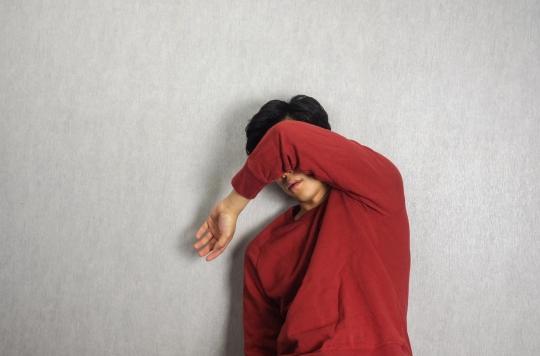Rises in temperature would have negative consequences on the mental health of individuals, which could even lead to an increase in suicides.

“Seasonal Depression”. The expression is known to all, implying that the climate can have a heavy impact on an individual’s psychic malaise. And if instinctively we would tend to imagine that it is the cold that makes us sink, it would seem on the contrary that the rise in temperatures is accompanied by an increase in suicide rates, if we are to believe one study to be published in December in the Journal of Health Economics.
In the United States, scientists from Ahmerst University of Massachusetts and California Polytechnic State University collected data from California emergency departments on mental health diagnosis visits from 2005 to 2016. They then collated information on suicides in the United States from 1960 to 2016 and data from a national survey of mental disorders covering more than 4 million people between 1993 and 2012.
Importantly, the researchers also collected information on factors that may influence the link between temperature and mental health such as access to air conditioning, availability of mental health services, insurance coverage, accessibility to treatment substance abuse and income levels.
Individuals adapt slowly to temperature changes
They observed that rising temperatures could have a detrimental effect on mental health. “Our main estimates imply that increasing the average monthly temperature by 1°F leads to a 0.48% increase in mental health visits and a 0.35% increase in suicides,” they note.
Moreover, their estimates remain stable over time: people do not seem to adapt very quickly to changes in temperature. The researchers also explain that they found “no evidence of effective adaptation to the effects identified anywhere – or among any group – in the United States”. Their estimates also remain the same after accounting for air conditioning adoption works and the socioeconomic status of those studied.
Finally, this link between rising temperatures and depression has been observed in both cold and more temperate regions. Thus, a rise in temperature would have a detrimental effect on mental health, even in individuals accustomed to heat.
Bad sleep, low morale
According to the researchers, the link between rising temperatures and mental health problems could be explained by sleep disturbances, as the heat often prevents sleep, which can have serious consequences on morale.
“Although it is possible that temperature independently affects sleep and mental health in a similar way, we argue that this is likely not the case since other research documents a strong link between poor sleep and measures of mental health that are not related to temperature,” the researchers note.
The latter would therefore like the health authorities to now take into account the results of their work to establish recommendations in terms of mental health. “Mental health care providers should ensure that patients get enough sleep during times when sleep is likely to be disrupted (such as a heat episode).” With their work looking only at temperature, the scientists hope that future studies will shed light on other environmental factors that may influence mental health, so they can find more ways to combat mental illness and suicide than they can lead.
Global warming weakens psychologically
The influence of the weather on mental health is often studied. If here, it is shown that the rise in temperatures would cause psychic problems, it is also proven that the lack of luminosity has negative consequences for our organism. Indeed, in winter, the lack of light upsets our biological clock (set of brain areas involved in various physiological functions), which affects our entire body, our hormones and therefore of course, our morale.
Global warming also seriously alters the psychological balance of individuals, in particular due to the increase in natural disasters it causes. Indeed, fires, storms, hurricanes and floods can cause serious trauma.
In the United States, exposure to Hurricane Katrina was associated with a 4% increase in mental health problems, while in the United Kingdom a recent flood study showed that people whose homes had weather-damaged were 50% more likely to suffer from mental health problems in the months that followed.

.
















